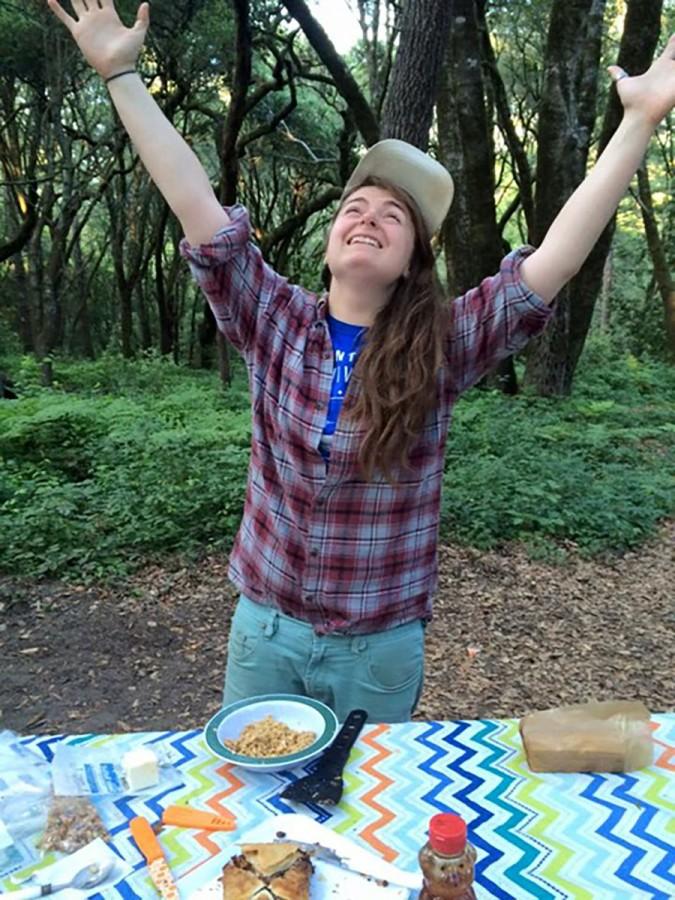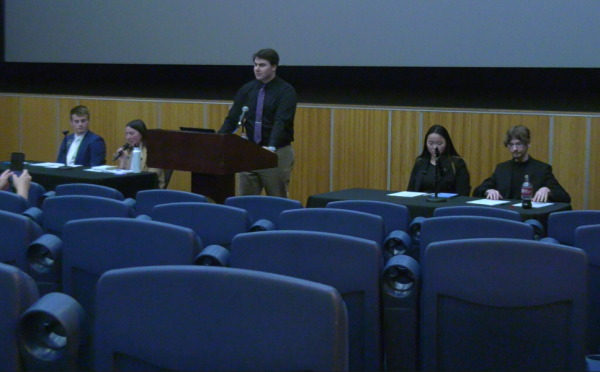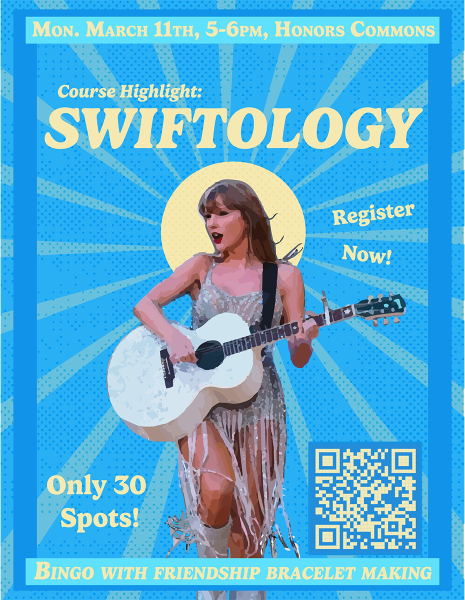Memories in Focus: stories about why we are how we are
UW-Eau Claire student shares their coming out experience
Photo by Lara Bockenstedt
Gabe Hafemann in a moment of joy while spending time with others.
November 12, 2015
It wasn’t until they arrived at their dorm and sat on the floor, weighed down by a variety of stresses that Gabe Hafemann, a senior sociology major, came out as transgender to another person.
Crying amidst the pressures, Hafemann’s close friend and roommate leaned over the edge of her lofted bed and asked them to share what was going on.
They began to list the cumbersome reality of two jobs, family drama, and an overwhelming weight of schoolwork.
After listing the various stressors, Hafemann reached the cusp: “ … and I don’t feel at home in my body.” While trying to find a way to explain what they meant, dysphoria and ideas of gender felt strange to Hafemann. According to WebMD, gender dysphoria is when a person feels strongly that their body does not match their true gender.
Hafemann said the moment that followed was pivotal. Their roommate had asked them to elaborate. “I’m … trans,” Hafemann said.
Hafemann rubbed their eyes as they sat up. The vast tension began to clear and a new feeling settled in.
There had been a slight transition to this event. Several months before, Kate Hafemann renamed themself Gabe after seeking out a more gender-fluid name. The archangel, their namesake, was chosen for their equally gentle and awe-inspiring presence.
Saying that they were transgender was intense, Hafemann said. Coming to terms with their own identity as well as speaking it out loud was new, vulnerable and raw. A scary sense of exposure wasn’t necessarily absent, but several “new normals” would come into focus in the following weeks.
Hafemann first approached a few friends. These few, whom Hafemann knew they could confide in, became a core foundation.
“Katie is Gabe now,” the friends shared during candid conversation. The effort from the community, Hafemann said, was especially seen from their teammates on the UW-Eau Claire women’s rugby team.
“People will show up and they won’t,” Hafemann said. “Either people will help you or they’ll leave you by the wayside. It’s taught me a lot about who to trust and how to trust.”
Some of the key elements of this community were that they listened with an understanding nature and were receptive to change.
Their respect for Hafemann’s identity resonated. More friends clarified their support and spread awareness that Hafemann’s best fitting pronouns were “they,” “their” and “them.”
In retrospect, Hafemann said they navigate relationships differently thanks to that community — they learned who they could value and lost a few close friends.
The negative effects were few, but difficult. Hafemann’s clarity of identity resulted in several burned bridges. Anxiety and depression manifested within the dysphoria.
However, Hafemann said what they gained is “so much more important. It’s something that is irreplaceable.” If anything, they could think about the support from the first person they came out to.
Telling family was a completely separate experience.
Hafemann came out as trans to their oldest sister last summer in San Francisco. Their sister had been making questionable comments about Caitlyn Jenner, and Hafemann’s discomfort with the situation ultimately made them decide to tell her.
While leaving for work the next day, Hafemann simply called over their sister and said “Hey Lola, call me Gabriel.”
While Hafemann will be coming out repeatedly to an assortment of people in their lifetime, they said the first time they did so was entirely unique and solidifying.
The following morning, they woke up surrounded by the scent of coffee and Hozier’s song, “Someone New.”
“Would things be easier if there was a right way,” Hozier sang. “Honey there is no right way/ And so I fall in love just a little ol’ little bit.”











